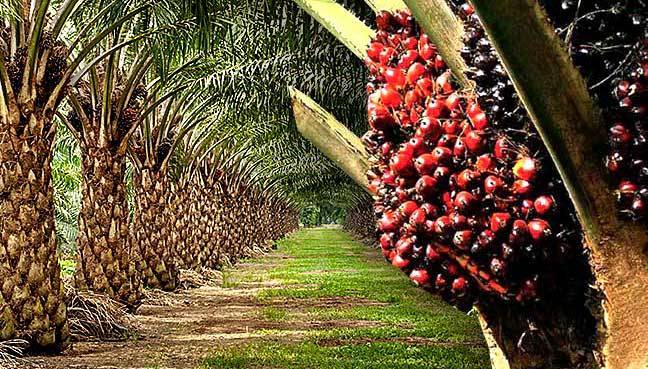By SINL Reporter
President, National Palm Produce Association of Nigeria (NPPAN) Mr. Alphonsus Inyang, has revealed that Nigeria will need to plant at least 1.2million hectares of the produce yearly over the next 10 years, to become the leading producer of oil palm.
Indonesia, which is the world’s leader in the industry, produces 34.7 million metric tonnes of oil palm yearly.
In an interview with the NATION, Inyang said Indonesia has the largest farmland of oil palm plantation in the world sitting on 12 million hectares; a sharp increase from its four million hectares in 2000.
“Nigeria’s total number of hectares is 360,000, both estates and small holder farms across 24 states. To meet up with the current position of Indonesia, we have to plant at least 1.2million hectares per year over the next ten years,” he said.
According to the NPPAN chief, although Nigeria’s palm oil is the most expensive in the world, her production capacity is less than 50 percent of local demand. He said Nigeria’s yearly production is 200,000 metric tonnes (MT) while demand is over 1,000,000 MT yearly.
He noted: “We are looking at increasing local capacity to feed the local market as we can’t complete in the international market place. Currently, my association has demand from Germany and Turkey to supply about 7, 500 metric tonnes (MT) per quarter but we have not been able to produce cheap enough to match the market price hence we had to defer the order.”
He continued: “If we get the required support by way of access to funds, land resource, high breed planting materials, processing facilities and training we can increase production by 25 percent in the next two years.”
He said the target is to produce enough to meet local demand before looking at the export market in future. “If we produce enough to meet local demand we will conserve foreign exchange for the country,” he added.
Palm oil is among the products that are in high demand around the world. It has become one of the most important globally traded goods. Analysts said demand is growing, particularly fast in China and India, the world’s two most populous countries, where masses of people get their daily fat intake from palm oil.

Call:
Sandra - 07069148333
Pauline - 08174374150
Scholastica - 09060678434













